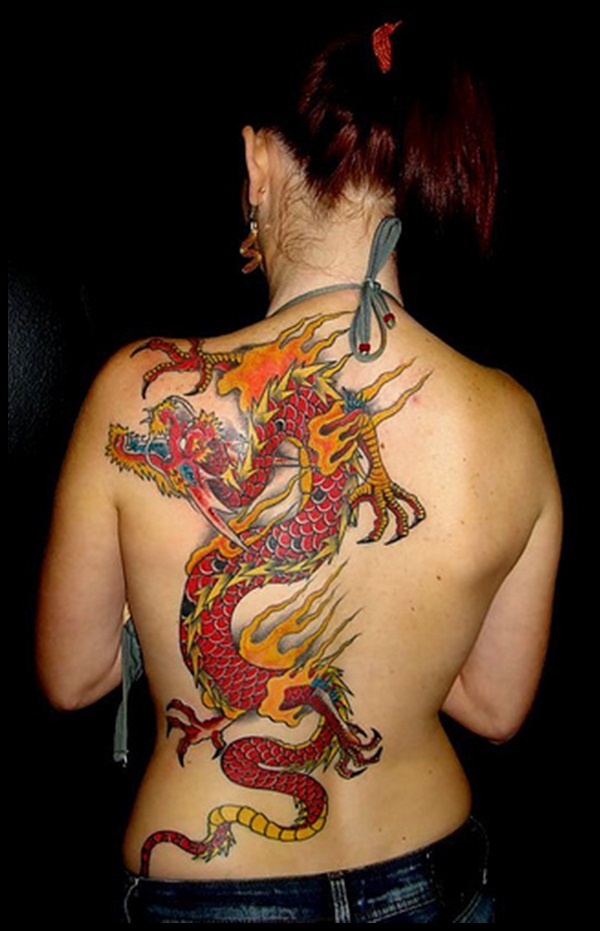Dragon Tattoo
Dragon tattoos have captivated the imaginations of countless individuals for centuries. These mythical creatures hold a special place in various cultures around the world, and their representation in body art has become increasingly popular in recent years. In this blog, we’ll delve into the fascinating world of dragon tattoos, exploring their deep symbolism, diverse meanings, and the artistic aspects of their design. Whether you’re considering getting a dragon tattoo or simply curious about the allure of these designs, this guide will provide you with the insight you need.
I. The Symbolism of Dragon Tattoos
- Power and Strength: Dragons are often seen as symbols of power and strength. In many cultures, they represent the indomitable forces of nature and the ability to conquer adversity. A dragon tattoo can be a personal reminder of one’s inner strength and resilience.
- Protection: In some traditions, dragons are believed to be protectors. A dragon tattoo can serve as a talisman, offering protection from negative energies and harm.
- Courage and Bravery: Dragons are courageous creatures, often depicted as fearless in the face of danger. A dragon tattoo can be a symbol of your own courage and willingness to face life’s challenges head-on.
- Transformation: In Eastern cultures, dragons symbolize transformation and rebirth. Getting a dragon tattoo might signify your desire for personal growth and positive change.
II. The Cultural Diversity of Dragon Tattoos
- Chinese Dragons: Chinese dragons are among the most iconic and revered dragons in the world. They are associated with wisdom, good luck, and prosperity. A Chinese dragon tattoo is an excellent choice if you’re looking to embrace these qualities.
- Japanese Dragons: Japanese dragons, or Ryu, are seen as water deities and are often depicted as serpentine creatures. They symbolize strength, balance, and protection. A Japanese dragon tattoo is a popular choice for those seeking harmony and inner peace.
- Norse Dragons: In Norse mythology, dragons represent chaos and the untamed forces of nature. A Norse dragon tattoo can be a symbol of your desire to embrace the wild and untamed aspects of life.
- Western Dragons: Western dragons are often portrayed as menacing creatures, but they also symbolize strength and bravery. A Western dragon tattoo can be a bold statement of your determination and fearlessness.
III. Designing Your Dragon Tattoo
- Choosing the Type of Dragon: Decide whether you want an Eastern, Western, Japanese, or Norse dragon. Each has distinct characteristics and symbolism, so choose the one that resonates with you the most.
- Size and Placement: Consider where you want your tattoo and its size. Smaller dragon tattoos work well on wrists or ankles, while larger designs can cover your back or wrap around your arms.
- Color Palette: The colors you choose for your dragon tattoo can convey different emotions. Red, for instance, symbolizes passion, while black represents mystery and power. Think about the message you want to convey.
- Customization: Personalize your tattoo with unique elements such as incorporating other symbols or adding a background, like clouds or waves, to enhance the overall look.
IV. Caring for Your Dragon Tattoo
- Aftercare: Properly care for your tattoo during the healing process to ensure it looks vibrant and stays in good condition.
- Regular Maintenance: Over time, tattoos can fade. Consider touch-ups to keep your dragon tattoo looking its best.
Conclusion
Dragon tattoos are more than just body art; they’re powerful symbols that carry deep meanings and connections to various cultures. When you decide to get a dragon tattoo, you’re not only expressing your unique style, but you’re also embracing the timeless symbolism and rich history that these creatures represent. So, whether you’re drawn to the majestic Chinese dragon or the fierce Western dragon, your tattoo will be a personal statement of strength, courage, and transformation that will stay with you for a lifetime.















































